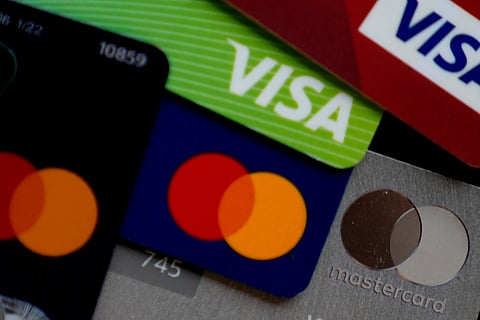UAE banks to hike card fees soon: 7 ways to save on overseas spending
Foreign transaction fees will be hiked by UAE banks to 3.14% from 2.09% from September 22

Dubai: UAE residents are facing higher costs on international card spending as banks raise foreign transaction fees to 3.14%, up from the previous 2.09%.
On a Dh5,000 overseas purchase, that adds roughly Dh157 in extra charges. For frequent travellers and online shoppers, these seemingly small fees can quickly add up.
Here’s how you can protect your dirhams and save hundreds on international spending:
1. Get zero or low forex fee cards
Brijesh Kumar, Chief Business Officer at Paisabazaar.ae, advises:
“Consumers should carefully check the ‘foreign transaction fee’ in the card’s terms and conditions. Apart from the headline benefits, looking at this hidden cost is important, especially for frequent travellers or those shopping online in foreign currencies.”
Cards like FAB Infinite Travel, FAB Low Rate, and ADCB Traveller Cards explicitly offer zero or low foreign exchange fees. These cards are ideal for frequent international spenders, Kumar further noted.
2. Opt more cashback when abroad
If your current card doesn’t waive fees, consider one that offers higher cashback abroad. Kumar adds:
“The other alternative would be to go for a card that offers higher cashback on international spends if your current card doesn’t offer such benefits.”
Cards such as Citi Cashback or Al Hilal Cashback can help offset the rising fees with rewards, he opined.
3. Avoid Dynamic Currency Conversion
Many merchants and ATMs offer to convert your bill to AED at checkout. Sounds convenient? It isn’t. Dynamic Currency Conversion (DCC) can inflate your bill by 5–7% on top of your bank’s 3.14% fee. Always pay in the local currency, not AED.
4. Limit ATM withdrawals abroad
Every ATM withdrawal abroad may incur fees. Withdraw larger amounts less frequently to reduce repeated charges and save on foreign transaction fees.
5. Consider prepaid travel cards
Some UAE banks and fintech companies offer multicurrency prepaid cards. These cards lock in exchange rates, avoid forex fees, and are a safer alternative for international spending.
6. Track your fees before you leave
Check your card’s foreign transaction and ATM fees via your bank’s mobile app or website. Knowing the exact charges in advance helps you plan your spending and avoid surprises.
7. Seek new payment options
The Jaywan card, UAE’s domestic payment scheme, is expected to expand globally in late 2025. It may provide reduced overseas transaction fees for residents once fully rolled out.
Consumer trends, alternatives
Beyond choosing the right card, Kumar highlights how UAE residents are adapting to rising fees.
“Awareness is growing, particularly among younger and digitally savvy consumers. They are starting to prioritise zero-forex fee cards as a way to save directly, rather than relying only on indirect benefits like rewards.”
He adds: “Rising forex fees could push consumers to explore multi-currency wallets, prepaid travel cards, or fintech solutions that offer competitive exchange rates. But credit cards will likely remain popular given their convenience, rewards, and security protections.”
Kumar also points out the practical perks of using credit cards abroad, from fraud protection and travel rewards to emergency support and easier refund claims—benefits that make the right card more than just a payment tool.
Bottom Line? Rising foreign transaction fees don’t have to derail your travel budget. By choosing the right card, avoiding DCC, withdrawing cash smartly, and exploring prepaid or new solutions like Jaywan, UAE residents can save hundreds of dirhams per trip.
The key takeaway: Plan ahead, choose wisely, and keep your dirhams working harder abroad.
Sign up for the Daily Briefing
Get the latest news and updates straight to your inbox



